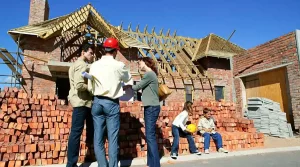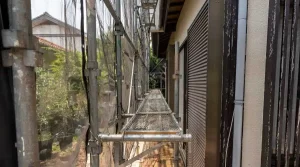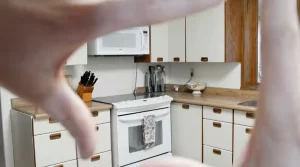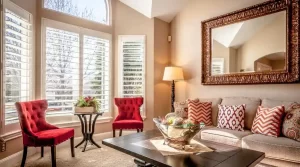Your custom builder’s attention to detail when creating the construction budget for your home directly relates to how accurately and precisely they will be managing your project. Your custom builder must be able to demonstrate that they have expended the necessary time, resources, and effort to create a budget that will come as close to reality as is practical. A new custom builder candidate should be considered if one is unable to accomplish this.
A Custom House’s Basic Budget
The first thing to grasp is that custom home budgets should always be compared on an individual basis. A wide range of variables must be considered in order to create a compelling and appropriate budget for unique residences. You should give it some thought and see if your builder has done the essential planning and research to be effective.
Also bear in mind that the more choices you make before to submitting your offer, the more detailed your budget may be. As a result of having more options, the builder will make fewer assumptions and hence use fewer items from the budgetary allowance.
Are you curious about the choices that must be made before a bespoke home is built? Our previous blog post is linked below.
In order to create a budget, a custom home builder may choose from the techniques listed below:
1.Use several bids and historical data.
This method, the most accurate, can be used to estimate the cost of building a particular architectural plan. After the plans and specifications are complete, your builder should be willing to put in the time and effort required to provide you with a genuinely fair estimate of how much it will cost to construct your home. This is done by receiving and meticulously evaluating hard bids from their network of subcontractors, comparing those costs to previous project costs, and creating an extensive itemized budget. Some builders look for ways to save costs, such as the following two strategies, because creating a comprehensive custom home budget necessitates a major investment of time, money, and knowledge.
2. Only use historical data
While it is OK to use historical data to generate a rough estimate that will serve as a guide during the architectural design stage, it will not be sufficient to provide a comprehensive final budget for a custom home like yours.
3. To develop your budget, work with an outside estimate firm.
If one of your building candidates employs this tactic, it should be avoided. This suggests that they are deficient in one or more of the following: the commitment to thoroughly examine and analyze your architectural plans; the historical data necessary to confirm bid totals or develop a truly comprehensive budget; a sizable subcontractor network to which they can reach out for quality bids; the manpower necessary to develop a meaningful and accurate budget; and the commitment to be the best steward of your resources.
Presentation of the Budget Conferences
We strongly advise meeting with each custom builder applicant face-to-face to discuss their budget in order to determine how accurate and thorough it is. It is essential to walk them through the budget, comprehend and clarify any suppositions that were made while calculating the expense of specific budget line items, and go over the numerous possibilities available to you in order to further tailor the budget. In a broader sense, this meeting gives you the opportunity to assess their communication skills, level of detail-orientedness, and professionalism.
Throughout this meeting, you should consider the following questions:
How carefully and thoroughly did the contractor study and become familiar with your architectural plans?
The more attentively they have analyzed your plans, the more assured you can be that they have recognized and budgeted for all of your home’s difficult design elements.
Did they make known to you the assumptions that formed the basis of the budget they created?
There will probably be some elements missing from your architectural design or specifications because bespoke homes comprise hundreds of small and significant aspects. The builder will consequently make a ton of assumptions to arrive at various budget amounts. It is imperative that they take advantage of this opportunity to discuss them with you in order to ascertain which of those assumptions needs to be amended in order to improve the accuracy of the budget.
Are there multiple bids from high-value subcontractors for the main line items?
The builder should make obtaining several bids a top priority for the foundation, roofing, plumbing, electrical, HVAC, windows, and exterior and interior doors. They are showing you that they value your resources highly, that they are meticulous and thorough in their work, and that they are committed to providing you with exceptional service and value both now and throughout the construction process by going through the time-consuming process of requesting and carefully evaluating numerous bids.
Do they carefully analyze each offer to make sure it is comprehensive?
Disparities in the subcontractor bids at this point could result in pricey change orders, budget overages, and future schedule delays.
Did they use low-quality subcontractors in an effort to win your project?
A budget compiled from low-quality subcontractor bids may look good on the surface, but it won’t ultimately be more economical. A move-in warranty issue can increase if low-quality subcontractors are used, which can lead to subpar work, more mistakes during construction, escalating time delays, and other issues.
Did they present you with any options during your meeting to review their budget?
Any one of the several factors mentioned above can be used in a variety of different ways. Good custom builders will seize this opportunity to find out more about your priorities and the features you desire.
There were justifications and explanations for all allowable item amounts, right?
The values of the allowance items are essentially plug-in numbers, therefore you should be aware of how the builder arrived at each item’s value. They should base their allowance figures on fair estimates of what a particular line item will cost, but this isn’t always the case if a builder is more interested in earning your business than providing you with a budget that makes sense. During your meeting to present your budget, revisions may be made after the builder has a better understanding of the level of finishing that you like.
Did they refer to historical data for comparable homes they had already built to verify the numbers in their budget?
This helps you out financially and shows how much experience they have building houses like yours. In no case should construction projects be tested on your home.
By meeting with your builder and asking them some crucial questions to assess the procedure they used to generate the budget for your custom home, you may learn not only how much it will cost to build your home but also how confident you are in your builder. This knowledge will be of tremendous use to you as you go with your custom home-building endeavors.










